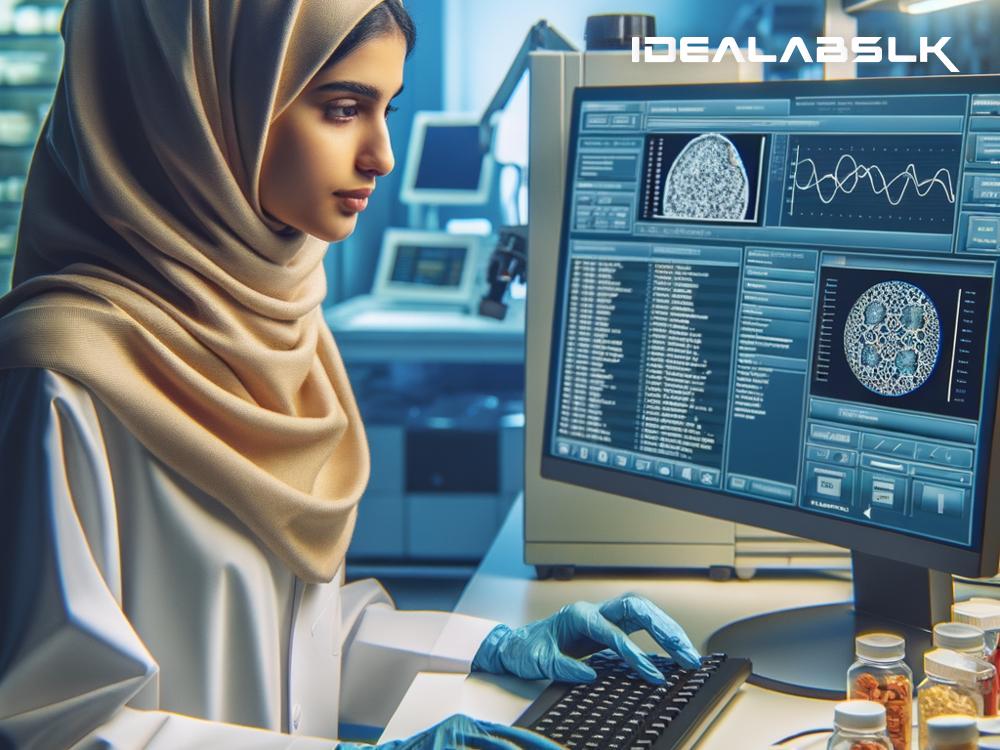AI-Powered Solutions for Food Allergy Detection: A Breakthrough for Safer Eating
Food allergies are no small matter. They affect millions of people around the world, and the consequences of consuming a food allergen can range from uncomfortable to life-threatening. Given how serious this issue is, it’s no wonder that finding reliable ways to detect food allergens has been a top priority for many in the food and technology industries. This is where artificial intelligence (AI) steps in to offer revolutionary solutions.
Gone are the days when people with food allergies had to painstakingly read every ingredient on food labels or rely solely on waitstaff's knowledge in restaurants. AI-powered solutions are changing the game, offering new ways to detect allergens and making the world a safer place for those with food allergies.
How AI is Being Used
AI, or artificial intelligence, refers to computer systems designed to mimic human intelligence. It's being applied in various fields, from medicine to manufacturing, and now, to food allergy detection. AI can analyze vast amounts of data quickly and with high accuracy, which is perfect for identifying potential food allergens.
AI in Your Pocket: Allergy Detection Apps
One of the most practical implementations of AI in this area comes in the form of mobile apps. Developers have created apps where users can take a photo of a food item's ingredients list, and using AI, the app instantly identifies and warns about potential allergens. These apps can be customized based on the user’s specific allergies, making eating out or trying new products less anxiety-provoking.
Smart Kitchen Gadgets
Imagine having a gadget in your kitchen that could scan your dinner and tell you if it's safe to eat. This isn't a scene from a sci-fi movie—it's becoming a reality thanks to AI. Smart kitchen gadgets equipped with AI technology are being developed to detect allergens in raw and cooked foods. These devices analyze the chemical composition of food and alert you to the presence of common allergens like peanuts, gluten, or seafood.
AI in Food Production
AI’s impact isn’t limited to end-consumer use. It’s also making waves in food production and packaging. AI systems can monitor and analyze every step of the food manufacturing process, helping to prevent cross-contamination with allergens. This could significantly reduce the number of food recall incidents due to undeclared allergens, making pre-packaged food safer for everyone.
The Future of Dining Out
Eating out can be a nerve-wracking experience for those with severe food allergies. However, AI could transform this experience, making it much more enjoyable. Some startups are collaborating with restaurants to create AI-based systems that can track and verify the allergen content of every dish on the menu. In the future, you might be able to scan a QR code at your table and immediately know which dishes are safe for you to eat.
The Challenges Ahead
While AI-powered solutions for food allergy detection hold great promise, there are challenges to address. Accuracy is paramount; a false negative could have serious health consequences. Consequently, these systems require rigorous testing and constant updating to keep up with new data and changing food formulations.
Another concern is accessibility. These cutting-edge technologies need to be affordable and user-friendly to make a real impact. Efforts are being made to ensure that the benefits of AI in food allergy detection extend to as many people as possible, regardless of their economic status or tech-savviness.
Conclusion
The advent of AI-powered solutions for food allergy detection is poised to make the world a much safer place for those affected by food allergies. From smart kitchen gadgets to AI in food production, and handy apps, these technologies offer hope and convenience to individuals who have had to navigate a minefield every time they eat.
As we look to the future, continued advancements and collaborations between technology developers, food manufacturers, and the medical community will be key in refining these AI solutions. By working together, we can ensure that these innovations reach their full potential in making food allergies more manageable and less intimidating.
While we're still in the early stages of adopting AI for food allergy detection, the progress so far is promising. As this technology continues to evolve, it offers a glimpse into a future where people with food allergies can dine with confidence and enjoy food just like everyone else.

